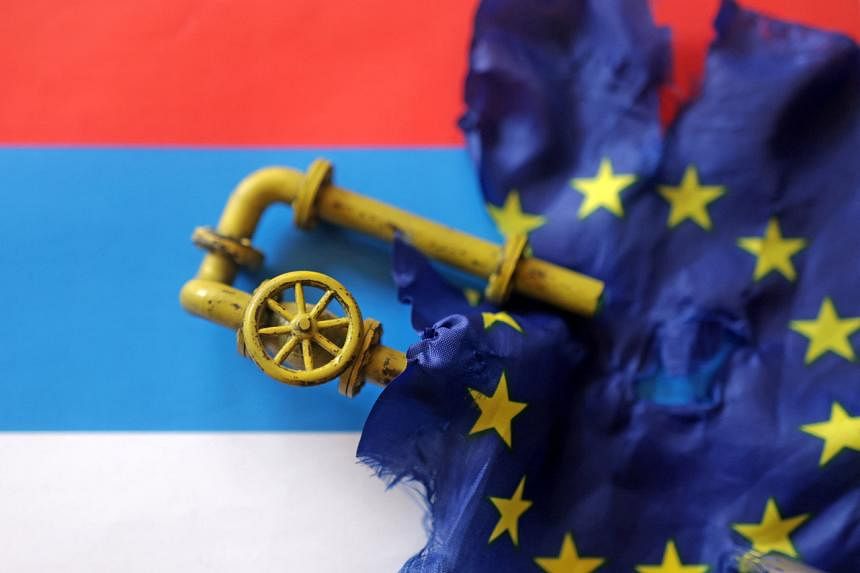BRUSSELS - European Union energy ministers were split on Friday over whether to cap Russian gas prices, as they met to work out steps to shield citizens and businesses from sky-high energy bills.
But ministers arriving for the emergency meeting indicated broad backing for moves to prevent power providers from being crushed by a liquidity crunch and several said it was urgent to decouple the price of gas from other cheaper energy sources.
Friday’s ministerial talks aim to whittle down options for further discussion, rather than reaching a final decision on ways to tackle a crisis fuelled by Russia’s invasion of Ukraine.
But many said agreement and action needed to be swift.
“We are in an energy war with Russia,” Czech Industry Minister Jozef Sikela said. “We have to send a clear signal that we would do whatever it takes to support our households, our economies.”
Energy bills, already surging as demand for gas recovered from the Covid-19 pandemic, have rocketed higher since the Ukraine war.
As Russia has reduced gas deliveries to Europe following the imposition of Western sanctions, EU governments have scrambled to limit the resulting energy price shock.
An EU proposal to cap Russian gas prices has so far failed to win support from a majority of countries, with Russia threatening to completely cut off the dwindling supplies that have continued to flow if such a step is taken.
Baltic states are among those backing the idea, saying it would deprive Moscow of cash to fund military action in Ukraine.
“Russia has said if you want our gas, take down the sanctions. It is blackmail. We cannot back down, we have to be united, we have to have the political will to help Ukraine win,” Estonian Economic Affairs Minister Riina Sikkut said.
But central and eastern European states, many of them more reliant than others on Russian fuel, fear losing all their supplies, while some question whether a cap would have much impact on reducing prices when deliveries are so low.
“If price restrictions were to be imposed exclusively on Russian gas, that would evidently lead to an immediate cut-off in Russian gas supplies. It does not take a Nobel Prize to recognise that,” Hungarian Foreign Minister Peter Szijjarto said.
German Economy Minister Robert Habeck said EU ministers should give Brussels the green light to prepare legislation to decouple the gas price from the price consumers pay for power from other energy carriers.
The European Commission this week said it would propose a measure to claw back revenues from non-gas power generators and spend the cash on cutting consumer bills.
A draft of the Commission proposal, seen by Reuters, would cap at 200 euros (S$81.51) per megawatt hour the revenues non-gas producer receive. It would apply to wind, nuclear and coal generators.
European power prices are typically set by gas plants, so the cap would aim to skim off excess profits made in recent months by non-gas producers that have lower running costs but have still been able to sell their power at soaring prices.
“The measures the Commission has recommended in taking some of those excess profits and recycling them back into the households makes sense,” Irish Environment Minister Eamon Ryan said.
But France, home to Europe’s biggest nuclear power fleet, questioned whether the same limit should be applied to all non-gas generators.
EU diplomats said governments broadly supported the EU’s proposal to offer emergency liquidity to power firms facing soaring collateral requirements, although the details of this have yet to be fleshed out.
Finland and Sweden have already offered billions of dollars in liquidity guarantees to power companies in a bid to prevent the cash squeeze from toppling firms.
The EU ministers held a minute’s silence at the start of their meeting, in memory of Britain’s Queen Elizabeth, who died on Thursday after 70 years on the throne.

